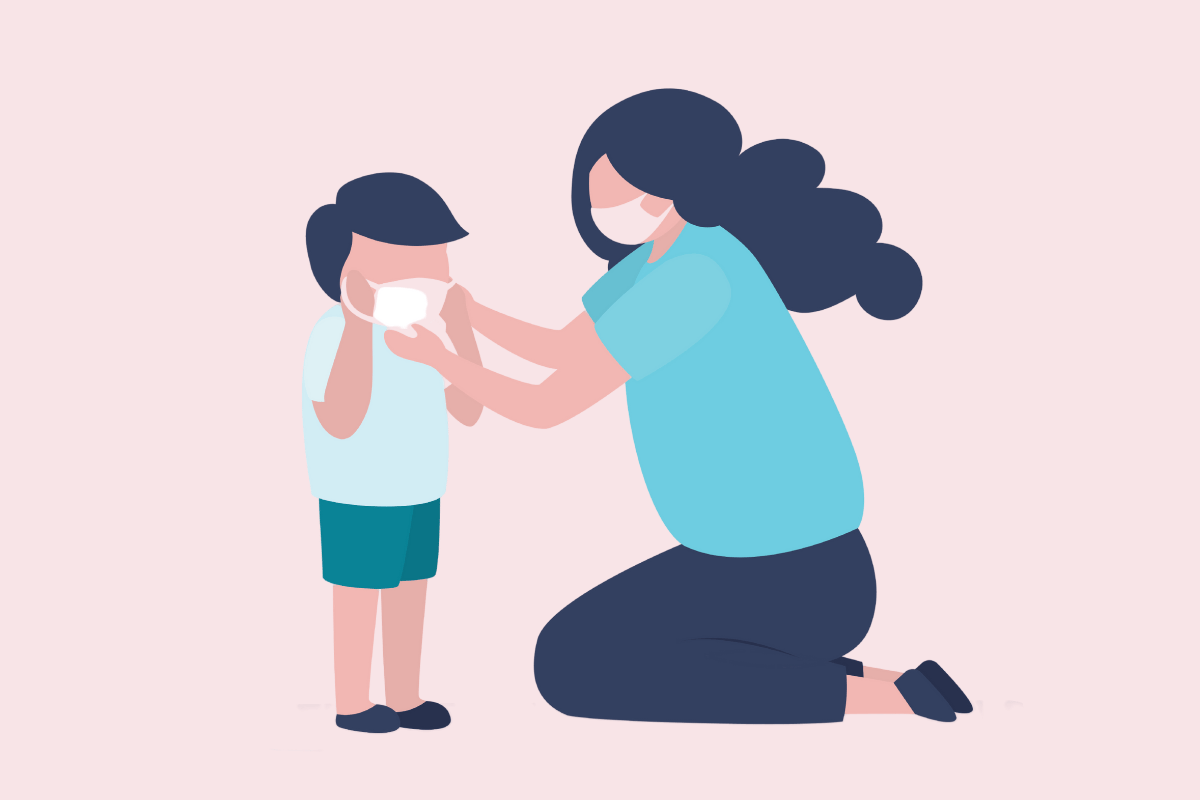
By now, many of us have either had or know someone who's had COVID-19.
And as case numbers continue to climb, it can be a particularly stressful time for parents who may be wondering what to do if their child tests positive for COVID-19.
So, to help take away some of the stress, we rounded up what you need to know if your child returns a positive result.
Watch: How to talk to anti-vaxxers. Post continues below.
From who you need to tell to what symptoms to look out for, here are your COVID-19 questions answered.
1. My child has COVID-19. Who do I need to tell?
Just like if you contracted COVID-19, you need to let the people your child has been in contact with know that they have tested positive. This includes their household contacts, friends and family they may have caught up with and your child's school/childcare.
If you're struggling to find the right words, the Victorian Government has put together an example message to send to social contacts.
When you tell your child's school/childcare, let them know the following information:
- The date your child got tested
- When your child got sick and if you they had symptoms
- The days they were at the education facility in the two-day period before they got sick or two days before their test if they have no symptoms.
The people they've come into contact with should follow the advice from their state or territory health department.
2. Do I need to report my child's positive COVID-19 RAT result?
In all states except for Western Australia, it's now mandatory to report a positive rapid antigen test result. And the good news is, it's really simple.
In Victoria, it's been mandatory to report your positive rapid antigen test since Friday January 7. As a parent, legal guardian or authorised carer, you can complete the online form on behalf of another person.
